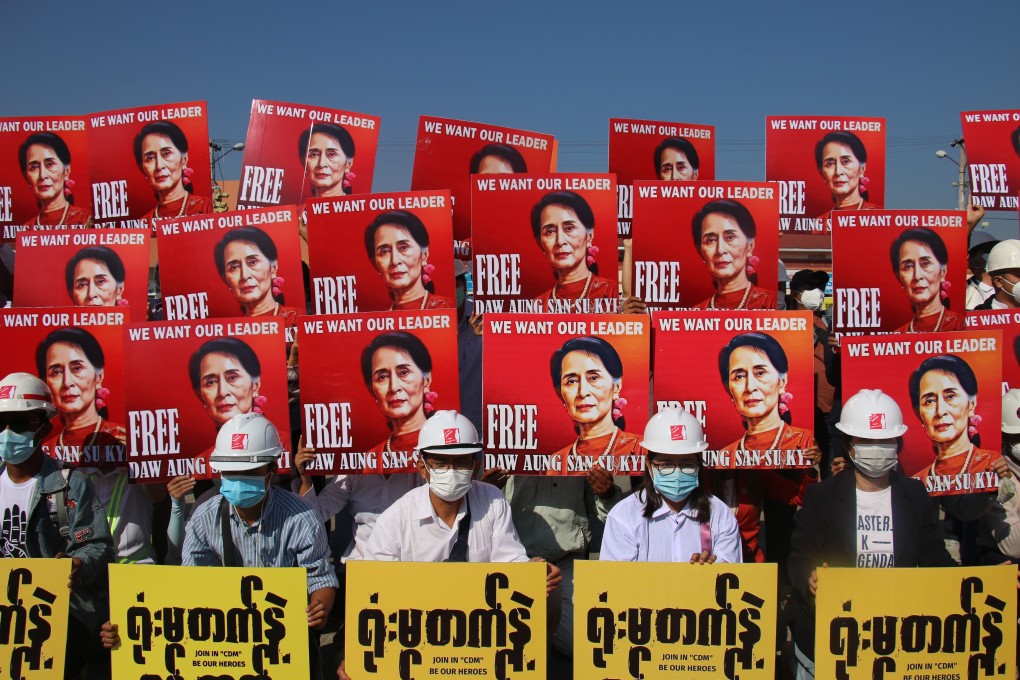Two weeks after the coup, Myanmar’s protesters are undaunted – but how far can the military be pushed?
- Amid internet blackouts, clashes with security forces and the deployment of soldiers, hundreds of thousands have taken to the streets to denounce the military coup
- But analysts say the generals will do what it takes to stay in power, and they have been unresponsive to past sanctions, threats or criticism from the international community

Suu Kyi, detained since the February 1 coup against her elected government, had been expected to face a court on Monday in connection with charges of illegally importing six walkie-talkies, but a judge said her remand lasted until Wednesday, according to her lawyer, Khin Maung Zaw.
The coup and the arrest of Nobel Peace Prize winner Suu Kyi and others have sparked the biggest protests in Myanmar in more than a decade, with hundreds of thousands taking the streets to denounce the military’s derailment of a tentative transition to democracy.
“This is a fight for our future, the future of our country,” youth activist Esther Ze Naw said at a protest in Yangon, the country’s largest city. “We don’t want to live under a military dictatorship. We want to establish a real federal union where all citizens, all ethnicities are treated equally.”
In the city of Mandalay, security forces on Monday evening used rubber bullets and catapults to disperse protesters, wounding two people, according to local media and residents.

01:37
Myanmar coup: junta cuts internet as troops open fire to break up protest
The unrest has revived memories of bloody outbreaks of opposition to almost half a century of direct army rule over the Southeast Asian nation, which ended in 2011 when the military – known locally as the Tatmadaw – began a process of withdrawing from civilian politics.
As well as the demonstrations in numerous towns and cities, the military is facing a strike by government workers, part of a civil disobedience movement that is crippling many government functions.